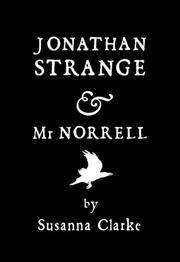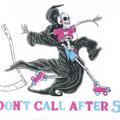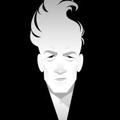Il più bel romanzo inglese che io abbia mai letto
[Vecchia recensione esportata da altro sito]
Nella mia pluriennale indagine sui capisaldi del fantasy anglofono, era inevitabile che prima o poi mi misurassi con quella prova del fuoco che è Jonathan Strange & Mr Norrell: l'altro pilastro della corrente New Weird assieme a Perdido Street Station, il romanzo che sta al corpus di Jane Austen come il Legendarium di J.R.R. Tolkien sta al mito germanico classico, l'opera acclamata come magistrale da alcuni e gettata nel camino da altri. Per parte mia, ricade nei capolavori, e più esattamente nei grandi romanzi mondo (che sono una delle mie passioni) – perché più romanzo mondo di così si muore. Andando dal generale in particolare, Jonathan Strange & Mr Norrell consiste di almeno quattro strati diversi che si intrecciano in un tutt'uno: è un romanzo storico sull'Inghilterra della Reggenza, in cui riviviamo dalla prospettiva britannica il grande duello fra il re matto …
[Vecchia recensione esportata da altro sito]
Nella mia pluriennale indagine sui capisaldi del fantasy anglofono, era inevitabile che prima o poi mi misurassi con quella prova del fuoco che è Jonathan Strange & Mr Norrell: l'altro pilastro della corrente New Weird assieme a Perdido Street Station, il romanzo che sta al corpus di Jane Austen come il Legendarium di J.R.R. Tolkien sta al mito germanico classico, l'opera acclamata come magistrale da alcuni e gettata nel camino da altri. Per parte mia, ricade nei capolavori, e più esattamente nei grandi romanzi mondo (che sono una delle mie passioni) – perché più romanzo mondo di così si muore. Andando dal generale in particolare, Jonathan Strange & Mr Norrell consiste di almeno quattro strati diversi che si intrecciano in un tutt'uno: è un romanzo storico sull'Inghilterra della Reggenza, in cui riviviamo dalla prospettiva britannica il grande duello fra il re matto Giorgio III e Napoleone Bonaparte (ivi compresa la battaglia di Waterloo, che è una sequenza fenomenale); è un "romanzo di maniera" perfettamente bilanciato fra la tradizione ottocentesca e la coscienza di classe post-1968, in cui seguiamo le vite intrecciate di una decina buona di personaggi fra primari e secondari (più qualche terziario che trasuda carisma), gentiluomini e gentildonne, ministri e servitori, furfanti e soldati; è un romanzo di fantasy liminale nella tradizione di Lud-In-The-Mist, basato sul rapporto di fascinazione e terrore che gli Inglesi anglosassoni provano per i miti di fate ereditati dai loro nemici Celti; è un immane esercizio di worldbuilding che crea per l'Inghilterra una storia medievale e moderna alternativa, sviluppandolo per altro non in foggia semi-lineare tramite appendici (alla maniera di Tolkien), ma in modo sapientemente anacronico (per certi versi ergodico) grazie a un fittissimo sistema di note a piè di pagina; è una riflessione meta-letteraria sui luoghi comuni del fantasy anglofono che mette sotto i riflettori il concetto tutto statunitense e positivista di una "magia dura" e quello (in parte sì britannico ma sicuramente banalizzato e feticizzato dagli yankee) del ritorno di un re perduto. E tutta l'opera trasuda una profonda inglesità fatta in egual misura di ironia e malinconia, più un tocco di citazioni ai grandi autori gotico-romantici (c'è Lord Byron fra i personaggi!) e al maestro Michael Moorcock (e non me lo sto inventando, Clarke è sostanzialmente sua allieva!). Certo, il finale del romanzo è un po' veloce e lascia per strada un paio di comprimari che sarebbe stato bello rivedere un'ultima volta, ma che diamine, il resto si legge che è un piacere: sono sempre 1000 pagine, ma le si sbrana pian piano come una scalata in montagna. Aggiungo infine un commento un po' snob: "Harry Potter è per lattanti, chi ha la magia inglese nel sangue si diploma con Jonathan Strange & Mr Norrell!"
Post scriptum vero: a questo punto credo di potermi mettere il cuore in pace. I massimi del fantasy anglofono li ho letti, ora posso passare ai "minori" che però mi gasano (alleluja).




